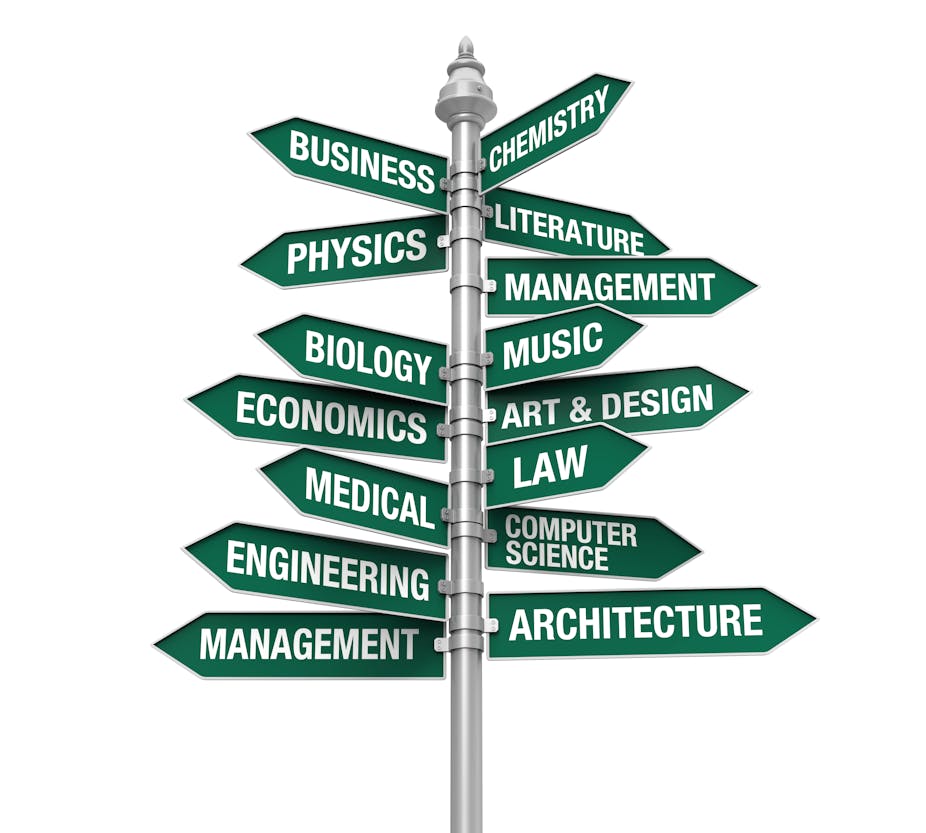
𝖧𝖮𝖶 𝖳𝖮 𝖢𝖧𝖮𝖮𝖲𝖤 𝖸𝖮𝖴𝖱 𝖬𝖠𝖩𝖮𝖱?
This is almost the first question you need to address while pondering the college application process – what do you want to study.
A lot of people may ask you want you want to be. If you want to become an astronaut, for example, you will need a degree in astronomical engineering, as well as a really good gym membership. But that’s probably not how you should address the What Major question.
Let me explain by example. I have a friend whose lifetime dream it is to become a restaurateur. He wants to set up a large chain of fine dining restaurants in India, and he’s already well on his way of achieving his dream. He’s worked at uber-expensive fine-dining chains in New York and in Delhi, and is all set to start his own this year. What did he major in? Economics and Psychology. A couple of classes in food psychology, a few in marketing, a wonderful course called Consumer Psychology (a cross-over between economics and psychology) during his four years at university had equipped him to deal with what he loves best – food!
Bankers and consultants too come from all walks of academia. Many have degrees in finance, but as many don’t. They may have studied economics, or engineering, or even literature!
 As you move along in your college career, you’ll find a diminishing correlation between what you want to study and what you want to be. There are professions in which a degree in a subject is crucial to your professional career, but there are those in which they are not! The goal is not to get a professional degree perfectly suited to your choice of eventual career. The goal is to learn and acquire the skills you’ll need to use in your imminent choice of profession.
As you move along in your college career, you’ll find a diminishing correlation between what you want to study and what you want to be. There are professions in which a degree in a subject is crucial to your professional career, but there are those in which they are not! The goal is not to get a professional degree perfectly suited to your choice of eventual career. The goal is to learn and acquire the skills you’ll need to use in your imminent choice of profession.
Therefore, a good way of exploring your choice of major is by thinking about what you enjoy studying – what fields of study really make you tick.
Bear in mind this:
College is designed to be academically challenging. You’ll be spending long hours and days hard at work, till the wee hours of the morning at libraries, trying to do research for a paper that’s due the next afternoon. On night like those, remember that it’s imperative for you to really enjoy what you’re studying. If not, your four years at university may end up being a veritable nightmare.
Also remember that most colleges use the bell curve to grade their classes. What this means for you is this – your grade in a class will depend on how the others have performed around you. If your classmates are enjoying their course work more than you are – odds are that they’ll be better at it too. So think about what you want to study, what you’ll excel at and never really get enough of. For academic success, you need the right balance of what studying what you enjoy and what you’re good at.
So begin by thinking about WHAT
1) you’re good at and
2) you enjoy.
Think about your lifetime and career goals. See if there exists an obvious correlation between the two. Chalk it out and get planning!
Note for Parents, Students, Counsellors: The information above was to the best of our knowledge at the time that this article was published. With every application cycle, or sometimes even during it, Colleges and Universities may change dates, policies, available majors and other relevant information. These updates will be reflected on the College and University websites themselves.
Please refer to the official college websites in addition to reading these articles. These articles are written only to provide general guidelines to students, not as a substitute for individual college websites.